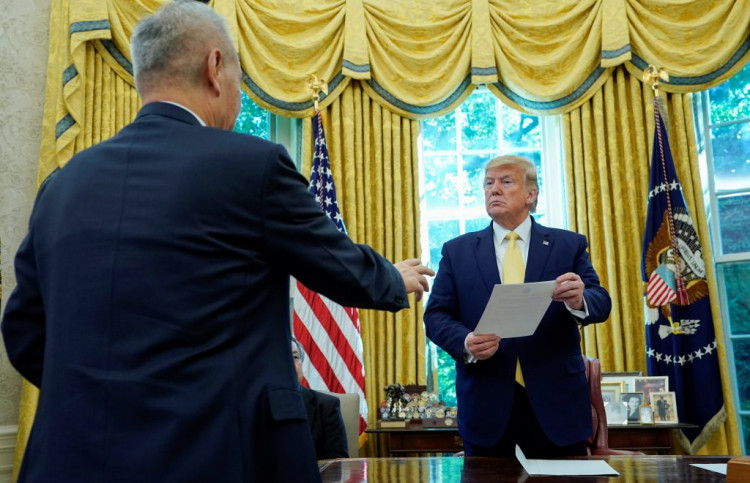Though President Trump said that China agreed to annually purchase up to $50 billion worth of US agricultural products including pork and soybeans, China is wary of making a numerical commitment in the trade agreement.
As negotiators work to have the "phase one" of the trade deal signed which President Trump outlined last month, trade talks between the US and China hit a snag over the purchase of agricultural products.
Some people said Beijing does not want a deal that looks more favorable to the US.
Likewise, China wants a wiggle room within the agreement in case trade tensions to happen again with one Chinese official saying "We can always stop the purchases if things get worse again."
This dispute over farm purchases is one of the issues that delayed the signing of the limited trade accord announced on Oct. 11.
The two largest economies are also at odds over Beijing's core demand that the US agree to either lift totally or by a certain amount the tariffs on Chinese imports.
Beijing's offers on other issues. depend on this core demand.
According to people familiar with the talks, Chinese officials also have resisted US demands, of topmost importance for businesses, in stopping the forced transfer of technology for companies wanting to do business in China.
On Wednesday, Mr. Trump said the talks were "moving along rapidly."
A day before that, he said the US is prepared to raise tariffs substantially if the two sides will not reach an agreement.
Business groups in the US are hoping for a deal that will stop the new tariffs from getting applied on consumer goods on Dec. 15 coupled with a rollback on the 15% levies on other imports that went into effect on Sept. 1.
A ministry spokesman last week said that the US agreed to remove some existing tariffs of what could be a multipart deal.
According to a person familiar with the negotiations, Robert Lighthizer, the US trade representative, isn't going to agree on the rollback on existing tariffs unless Beijing shows more flexibility.
A former senior U.S. trade official who has negotiated with Beijing said the Chinese officials are holding off on making commitments until they are sure the Trump administration will remove existing tariffs.
On Oct. 11, Mr. Trump said China and the United States had an agreement in principle for a phase one deal in which China would purchase $40 billion to $50 billion of US agricultural products.
Besides farm purchases, US officials also expect China to sign on to rules preventing currency manipulation, protect foreign companies' intellectual property and open up its financial markets.





